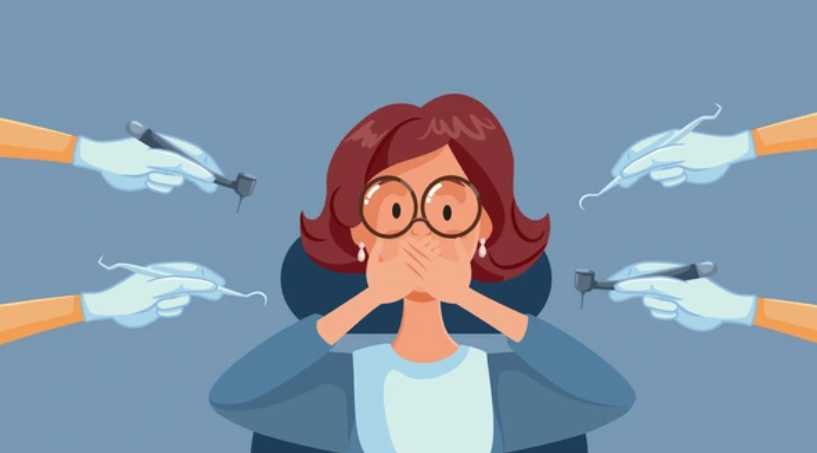
Having worked as a dentist for the close to two decades, I cannot tell you how often I hear patients tell me that they are anxious, or downright petrified that they have to see a dentist; I have seen burly tattooed men reduced to a shivery mess just by the sight of the local anaesthetic needle. The sounds and smells associated with seeing a dentist can be triggers for some patients, and that alone can make them back out of the front doors of the dental office before they have even fully entered the premises.
What can cause dental anxiety?
- Smells and sounds related to the dental office
- The feeling of “drowning” when there is too much water collecting at the back of your throat
- Fear of pain, blood or needles
- Previous bad dental experience
- Embarrassment about the state of your oral health
- Having little to no understanding of what is coming
- Having trust issues, usually secondary to mental or physical trauma
What can trigger dental anxiety?
- Prolonged waiting time in the dental office
- Feeling a sense of loss of control when the dentist reclines the dental chair
- When your concerns are dismissed offhandedly by the dental team
What can you do to alleviate the anxiety related to a dental visit?
- Verbalizing your concerns and fears to the dental staff – this would let them know that you may need more time to settle in, during the appointment
- Get someone you trust to accompany you to the dental appointment – after all, there is always safety in numbers; that someone will also make sure that you attend the appointment as planned and not conveniently forget about the appointment
- Request for the first appointment of the day, or the first appointment after the lunch break – this would reduce the possibility of waiting for a long time in the waiting room; there is truly nothing worse than sitting for a prolonged time at the dental office when you are already stressed
- Bring earphones and your favourite music – this would help block out the unpleasant sounds at the dental office
- Practice mediation or controlled breathing
- Using a stress ball
What other options are available to manage dental anxiety?
- Anti-anxiety medications (e.g. Valium) from your medical doctor
- Relative analgesia (nitrous oxide, otherwise known as laughing gas)
- Intravenous sedation by certified anaesthesiologist
- General anaesthesia by certified anaesthesiologist in a hospital setting
The above options are used as appropriate to the patient’s level of dental anxiety, but note that not all options are available to every dental office, and some pre-existing medical conditions can result in exclusion of some options for the patient.
The dental team is generally there to provide support, and can help you cope with your anxiety during the dental visit. It is important to let the dental clinic staff know about your dental anxiety, both when you make the appointment, and when you arrive at the dental office. Attentive dental staff can go a long way to put you at ease.
How now, brown cow?
Open communication between the dentist and the patient is essential to allow successful management of patients with dental anxiety. It is critical for the dentist to listen to and acknowledge the patient’s concerns and fears, and not just dismiss them. Anxious patients may require frequent breaks between each step of the dental procedure, and explaining the procedure beforehand can help them manage their expectations and anxiety levels. For some patients with extreme dental anxiety, treatment may need to be done in conjunction with appropriate medications or some form of sedation.
Generally, if you do not like coming to the dentist, make sure that you take extremely good care of your teeth and gums; this would reduce the need for complex, costly and sometimes painful dental treatment. If you want to reduce your stress levels related to dental visits, it is also crucial to plan routine 6-monthly dental check-ups, to allow detection of any dental issues at the initial stages, so that they can be dealt with early on, allowing minimal intervention.
